|

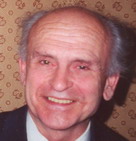
|
The announcement of creation a mug
on studing the revolutionary
theory |
|

|
V.A.VAZULIN
THE LOGIC OF HISTORY.
QUESTIONS OF THEORY AND METHODOLOGY
(in Greek).
(2004, 2013)
|
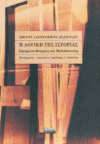
|
|

|
P. PAVLIDIS
THE
PHENOMENON OF BUREAUCRACY IN USSR (in Greek).
|
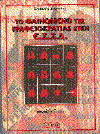 |
|

|
М. DAFERMOS
VYGOTSKY's
CULTURAL-HISTORICAL THEORY. PHILOSOPHICAL-PSYCHOLOGICAL-PEDAGOGICAL
DISSENSIONS
(in Greek).
|
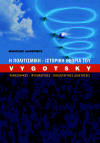
|
|

|
М. DAFERMOS
THE
HISTORICAL MAKING OF PSYCHOLOGY
(in Greek).
|

|
|

|
P. PAVLIDIS
KNOWLEDGE
IN THE DIALECTICS OF SOCIAL EVOLUTION
(in Greek).
|
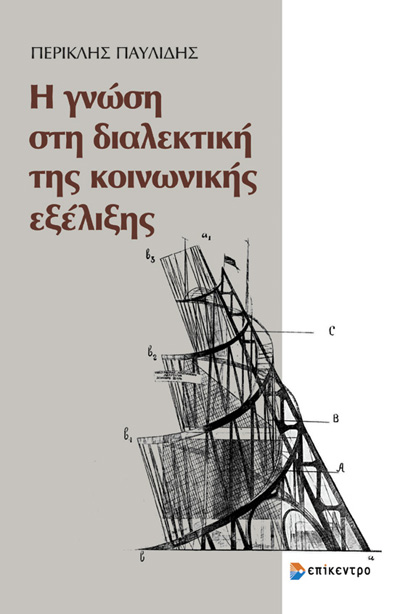 |
|
|
|
International LogicAL-HistorICAL School |
The International
Logical-Historical School
has been created by pupils-followers of the professor of
Philosophical Faculty of Moscow State University V.A.
Vazulin (30.08.1932-08.01.2012).
Victor Alekseevich Vazulin is a thinker which
creativity in the certain sense has opened a new stage in
the development of science.
Theoretical research into the processes of human development
along with critical revaluation of social theory and social
philosophy brought forth an original trend in the sphere
of social theory, dialectical logic and the methodology of
science. This trend found its expression in V.A.
Vazulin’s conception of the “Logic of History”.
The main scientific
achievements that brought V.A. Vazulin to his conception
are:
1) Revealing the logic of
the theoretical part of Marx’s “Capital” by a systematic
category revaluation of politico-economic material alongside
a parallel critical analysis of Hegel’s “The Science of
Logic”. This enabled him to work out the methodology
of advanced research, mature science regarding the organic
whole.
In the framework of this logic and methodology we see, in pure
form, the ascent from the abstract
to the concrete in its dialectical unity with the ascent
from the sensual-concrete to the abstract, the logical in
its dialectical unity with the historical, the reasonable
aspect of thinking
(germ. Vernunft)
in unity with the intellectual (germ.
Verstand).
2)
A concrete historical approach to Marxism, which is treated
as a scientific system developing
through the appearance and resolving of necessary
contradictions (of the real
object and of the process of cognitive activity); it should
be mentioned that the systems are internally
united in the
differences of their components, each of which is at a
certain level of its making and development. The logical and
methodological analysis of the history of Marxism made by
V.A. Vazulin
(from the
point of view of the methodology of the political economy of
capitalism – the most developed part of it) made it
possible, firstly, to reveal the objective laws and
contradictions
(including the necessary errors) of the beginning, the
emergence, the formation, and the maturity of the
development of scientific research, i.e. the
movement of cognitive thinking from the external to the
internal and vise versa, from the surface to the essence of
the object (of the subject matter) and vice versa, and so
on; and, secondly, to concentrate all efforts on the most
promising diversion for the development of social theory.
The above-mentioned achievements are internally connected to
the approach to scientific thinking “as
a process of natural history, governed by laws”.
3) The creative development
made by V.A. Vazulin of the method of scientific
investigation made it possible to reveal the inner
systematic interconnection of laws and categories of social
history which reflect the structure of developed society; it
also made it possible to outline the theoretical
periodization of human history (the objective laws
of its “ascent” from the very beginning,
the emergence, the formation, to the maturity)
through a prism of interconnections of natural and social
factors.
The scientific discoveries made by V.A. Vazulin and especially
the discovery of the “Logic of History”, made
it possible to comprehend the regularities of the
development of society more substantially and fully than in
classical Marxism. At the same time, those discoveries
opened the stage of the consecutive dialectical
development of Marxism
(“sublation” in a new synthesis) by “sublating”
historical materialism and the formation approach.
The prognostic strength of this theory and methodology was
repeatedly approved in the early seventies. The theoretical
approach of the “Logic of History” to the
fundamental problems of social development (on “early”
socialist revolutions, the extensive and intensive
development of production forces, formal and real
socialization etc.) provides a key to the comprehension of
an objective reason for a number of social phenomena,
opening the whole scale of research approaches. Such
phenomena include, for example, the problem regarding the
reasons for the victory of the capitalist
counterrevolution and restoration as opposed to the
dominant reduction of these reasons to a subjective factor,
the problem of perspectives for mankind
etc.
Modern life shows the need to reveal in greater depth the
cognitive and heuristic potential of this concept.
| |
|
 |
|
|
|

|
V.A.
VAZULIN
THE LOGIC OF K. MARX's
"CAPITAL"
2nd
Edition
Мoscow 2002
|
 |
 |
D. PATELIS
Philosophical and Methodological Analysis
of the Making of Economy Science.
Moscow, 1991. |
|
|
 |
S.I.
RUDAKOV
The Dialectic contradiction in methodology
of the value theory.
Voronezh, 1992
|
|
|
 |
N.
LIMNATIS
Manipulation:
essence, appearances, ways of sublation.
Moscow, 2000
|
|
|